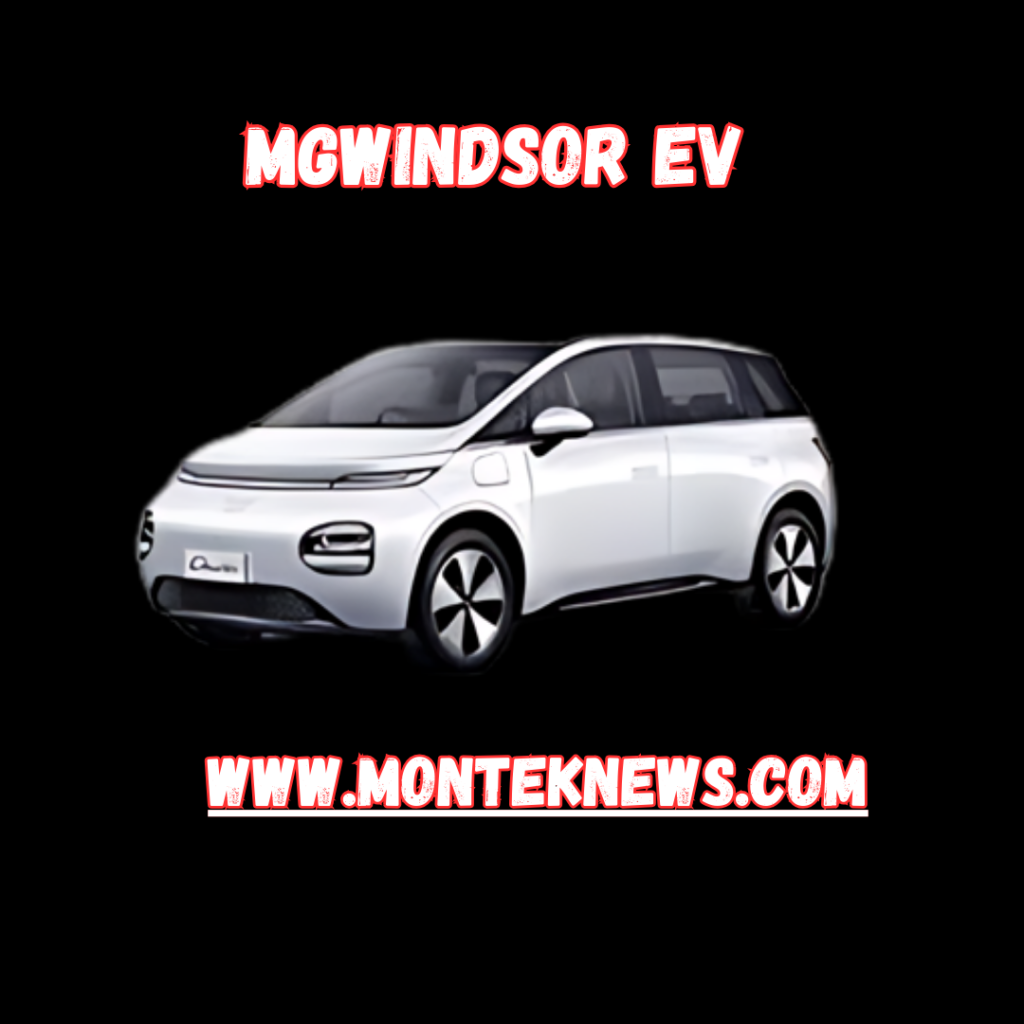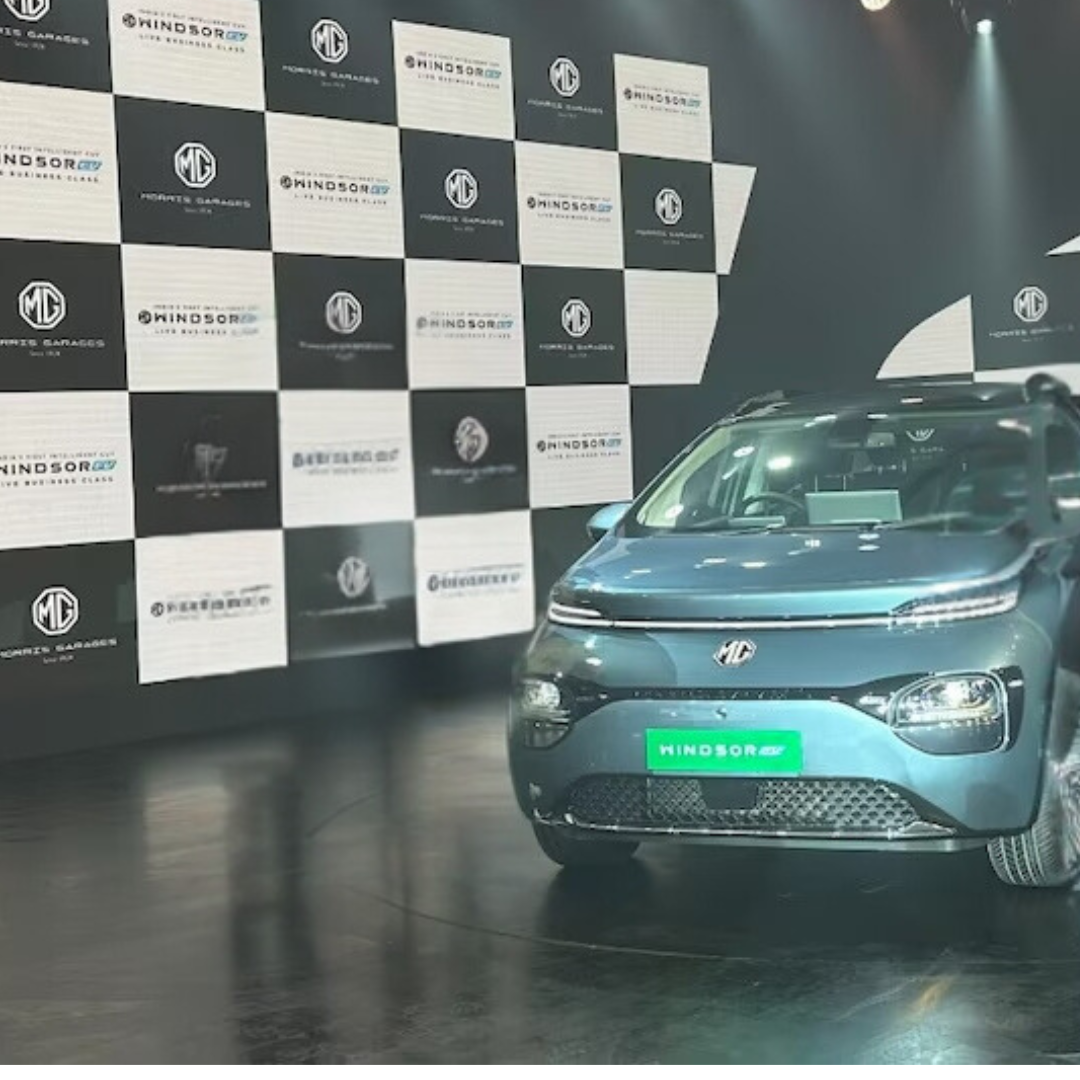Table of Contents
ToggleJSW MG Motor India to Focus on Battery Electric, Plug-in Hybrid, and Strong Hybrid Vehicles: Parth Jindal
Overview
JSW MG Motor India is gearing up for a strategic shift in its vehicle lineup, focusing heavily on next-generation vehicles like battery electric (BEV), plug-in hybrid (PHEV), and strong hybrid vehicles (HEV). According to Parth Jindal, a member of the company’s steering committee, this transition marks a move away from conventional internal combustion engine (ICE) vehicles and positions the company at the forefront of India’s growing green mobility sector.
Jindal discussed these plans during the launch of JSW MG Motor’s latest electric vehicle, the Windsor EV, which is poised to play a pivotal role in the company’s efforts to increase its electric vehicle (EV) sales and market share. This decision is driven by both global trends in the auto industry and the Indian government’s push towards sustainability in the transportation sector.
Strategic Focus on New Energy Vehicles
Parth Jindal made it clear that the future of JSW MG Motor lies in new energy vehicles. “We intend to invest in new energy automobiles,” Jindal stated, “Therefore, plug-in hybrid, battery-electric, or strong hybrid cars would be the cornerstones of JSW MG Motor moving ahead.” The company’s strategy is to focus on advanced hybrid and electric vehicles that offer better fuel efficiency and lower emissions compared to traditional ICE cars.
While the company is prioritizing these next-gen vehicles, Jindal clarified that they would avoid introducing light hybrid (mild hybrid) models to the Indian market unless technological limitations make it unavoidable. “It’s not that MG will never bring light hybrids,” Jindal added, “but as much as we can avoid it, we would like to avoid it.”

The MGWindsor EV: A Key Player
The MGWindsor EV, which debuted during the launch event, represents JSW MG Motor’s first step in achieving its vision of making electric mobility mainstream in India. According to Rajeev Chaba, CEO Emeritus of JSW MG Motor India, the company aims to localize up to 80% of Windsor EV production over the next 10–12 months, ensuring that the vehicle meets the demands of Indian customers at an affordable price point.
Currently, the company’s EV localization level remains low, but increasing domestic production is seen as crucial to lowering costs and boosting sales. This localization effort is expected to help MG Motor become more competitive in the Indian EV market, where the government is offering significant incentives for locally produced electric cars.
Chaba also emphasized that the Windsor EV is designed to cater to a wider audience, particularly in the Rs 9–11 lakh segment. He said, “If we limit our play to the upper price range, we don’t think we can accomplish it. We must compete in the large national market of Rs 9–11 lakh.” This price range positions the Windsor EV as a strong competitor against other affordable electric vehicles currently available in the Indian market, such as Tata’s Nexon EV and Mahindra’s e-Verito.
Rising EV Sales and Growth Prospects
JSW MG Motor has seen promising growth in its EV sales, reporting a 52% increase in the first seven months of CY24 compared to the same period last year. At present, electric vehicle sales account for around 35-40% of the company’s total sales, but with the introduction of the Windsor EV, Jindal expects that figure to surpass 50% by the end of the year. This reflects a growing consumer appetite for electric vehicles, driven by rising fuel costs and the increasing availability of EV infrastructure across India.
Jindal highlighted the importance of scaling production and reducing prices in order to capture a larger share of the market. “JSW MG Motor has no intention of selling only 1,000 vehicles at ex-showroom pricing each month,” Jindal said. “We aim to compete with vehicles that cost roughly Rs 10 lakh with the Windsor EV.” He also stressed the importance of affordability, noting that the “battery-as-a-service” (BaaS) model could be crucial in bringing down ownership costs.
Also Read : India’s EV Market Slips in August: Tata Still on Top
The Battery-as-a-Service Model
Jindal pointed to the battery-as-a-service (BaaS) model as a solution to high EV prices. Under this model, customers can purchase an electric vehicle without the battery, which is typically one of the most expensive components. Instead, they would lease the battery separately, paying a subscription fee based on usage. This model has been gaining traction globally, particularly in markets like China, and Jindal believes it could be key to making electric vehicles more affordable in India.
The BaaS model would allow JSW MG Motor to compete in the highly price-sensitive Indian market while also addressing concerns about battery lifespan and replacement costs. By offering this model, the company hopes to attract a broader customer base, including those who might otherwise be deterred by the high upfront costs associated with purchasing an EV.
JSW Group and MG Motor: A Strategic Partnership
The partnership between JSW Group and MG Motor India has been crucial to the latter’s push into the electric vehicle space. JSW Group, a major Indian conglomerate with interests in steel, energy, and infrastructure, has provided critical financial backing and technical expertise to help MG Motor expand its operations in India. This partnership has also allowed MG Motor to leverage JSW’s strong supply chain networks, facilitating the localization of production and reducing the overall costs of vehicle manufacturing.
MG Motor India, originally a subsidiary of the British automotive company MG (Morris Garages), entered the Indian market in 2019. Since then, it has quickly established itself as a key player in the SUV segment, with popular models like the MG Hector and MG ZS EV. The company’s decision to shift its focus toward electric and hybrid vehicles is part of a broader strategy to differentiate itself in an increasingly competitive market. With the Indian government’s ambitious target to achieve 30% EV penetration by 2030, MG Motor is well-positioned to take advantage of the growing demand for eco-friendly vehicles.
Buy Best Infotainment System At Discounted Price
Conclusion
JSW MG Motor India’s decision to focus on battery electric, plug-in hybrid, and strong hybrid vehicles marks a significant shift in the company’s long-term strategy. By prioritizing the development of new energy vehicles and embracing innovative models like battery-as-a-service, the company aims to make electric vehicles more accessible and affordable to Indian consumers. With the Windsor EV set to play a central role in this transition, JSW MG Motor is poised to become a leader in India’s fast-growing electric vehicle market. The company’s efforts to localize production and compete in the mid-range price segment will further strengthen its position as a key player in the green mobility space.
For more information on JSW Group and MG Motor India’s collaboration and electric vehicle plans, visit their official website and MG Motor India page.
Sources:


3 thoughts on “JSW MG Motor’s Partnership: Launch of MGWindsor EV”